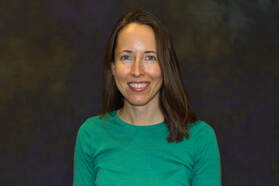|
By Dr. Katie Cramer ***The following post was originally posted on Dr. Cramer's personal blog, which can be found here. In her groundbreaking book Cultivating genius: An equity framework for culturally and historically responsive literacy, Dr. Gholdy Muhammad convincingly argues that Black and Brown excellence has been erased from our curriculums and that contemporary education prioritizes the teaching of basic skills to the detriment of our students, particularly our students of color. To address these significant issues, Muhammad (2020) developed the Historically Responsive Literacy (HRL) Framework based on her research on Black Literary Societies of the early 1800s in which “literacy was not just for self-enjoyment or fulfillment, it was tied to action and efforts to shape the sociopolitical landscape of a country that was founded on oppression” (p. 22). The four pursuits of the HRL Framework The HRL Framework features four interwoven pursuits that also align with those of the Black Literary Societies of the early 19th century:
In her book, Muhammad argues that the HRL Framework is useful in all content areas at all levels. She explores each of the four pursuits in detail and convincingly argues the value of each one. For example, in describing identity development, Muhammad (2020) reminds us that identity was stripped from enslaved Africans and so it is vital that people of color know themselves in order to tell their own stories (p. 64). We must encourage our students to speak for themselves, and we must listen. We must also interrogate and resist our own deficit thinking (e.g., labeling students first/only as “at risk,” “defiant, “unmotivated, “tier 3”), and instead take an appreciative stance toward their existing literacies (Bomer, 2011, p. 21). We must check our (colleagues’) bias when speaking about students who have been and continue to be marginalized in schools. We must listen to Muhammad’s words: “I have never met an unmotivated child; I have, however, ‘met’ unmotivating curriculum and instruction” (2020, p. 65). Indeed, our students’ identity stories must begin with their excellence (Muhammad, 2020, p. 67). Erasure of Black and Brown Excellence Dr. Muhammad convincingly argues that knowledge of Black Literary Societies and Black and Brown excellence has been erased from our curriculums throughout PreK-16, including in teacher education programs. Like Larry Ferlazzo (2020), I am embarrassed to admit that I had never heard of Black Literary Societies before reading her book. She urges teacher educators (those who prepare future teachers) toward the following pursuits:
Exploring the HRL Framework As teachers (at all levels), we must interrogate our own practice using the HRL framework, asking ourselves for each pursuit: “Where is the evidence in my practice?” and “What are my goals for improvement?” To engage in this work, I urge you to review questions for reflection from Dr. Muhammad that accompany each pursuit and consider how you might revise (or design new) lessons/units to fulfill these pursuits—and engage in your own intellectual development by exploring Dr. Muhammad’s work further (see links the list of references below): Identity
Skills
Intellect
Criticality
Friends, we must interrogate our curriculums—the ones we design AND the ones provided by our school districts. As Dr. Muhammad (2021) reminds us, we “have enough genius to do this work.” So let us begin. References Bomer, R. (2011). Building adolescent literacy in today’s English classrooms. Heinemann. Ferlazzo, L. (2020 Jan. 28). Author interview with Dr. Gholdy Muhammad: “Cultivating genius.” Edweek. https://www.edweek.org Muhammad, G. (2020). Cultivating genius: An equity framework for culturally and historically responsive literacy. Scholastic. Muhammad, G. (2021 Mar. 17). Cultivating genius and joy: An equity model for culturally and historically responsive literacy [Webinar]. WRITE Center. https://www.writecenter.org/webinars.html Further reading Learn more about Dr. Gholdy Muhammad by viewing her faculty profile at Georgia State University. For more information on Black Literary Societies, read Cultivating Genius and/or Forgotten readers: Recovering the lost history of African American literary societies (2002) by Elizabeth McHenry, the first chapter of which is available HERE.  About the Author Katherine Mason Cramer is a former middle school English teacher and a professor of English Education at Wichita State University. She has been a KATE member since 2010 and an NCTE member since 2000. She serves on the KATE Executive Board, and has served as Editor of Kansas English since 2017. She can be reached at [email protected].
0 Comments
Your comment will be posted after it is approved.
Leave a Reply. |
Message from the EditorWelcome! We're glad you are here! Archives
April 2024
Categories
All
|
 RSS Feed
RSS Feed